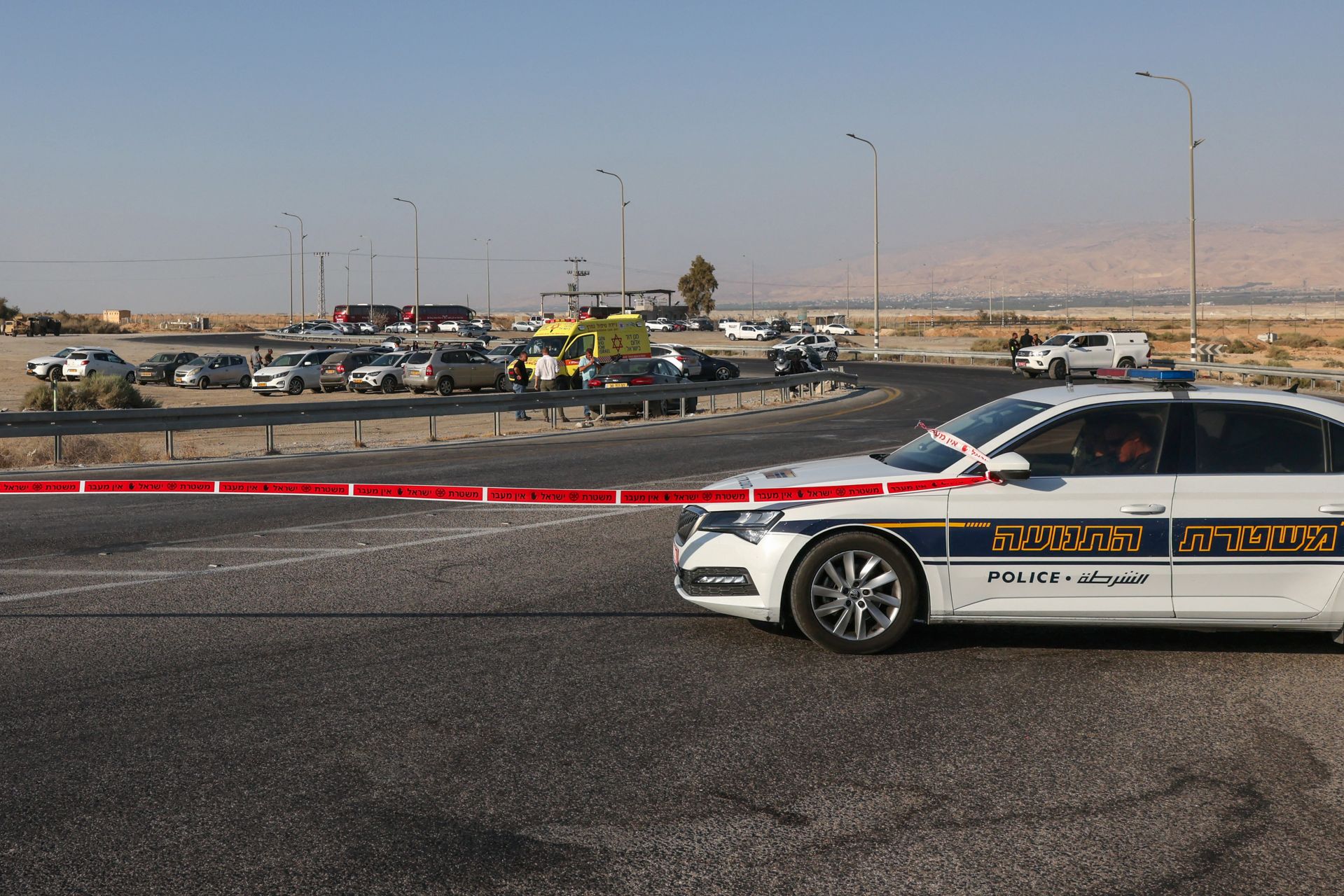- Home
- Middle East
- The Allenby Bridge: A Vital Crossing Between the West Bank and Jordan

Israeli security forces close off a road leading to the King Hussein (Allenby) bridge, the main border crossing between the Israel-occupied West Bank and Jordan, following a shooting attack on September 18, 2025. ©Ahmad Gharabli / AFP
Israeli Prime Minister Benjamin Netanyahu on Tuesday ordered the complete closure of the Allenby Bridge, also known as the King Hussein Bridge, which connects the West Bank to Jordan.
The measure, announced by Israeli Army Radio and confirmed by the Palestinian General Authority for Borders and Crossings, concerns the only official crossing point that allows Palestinians to travel abroad via the Hashemite Kingdom. It is also the main route for transporting commercial goods and humanitarian aid between Jordan and the West Bank.
The bridge spans the Jordan River between the city of Jericho (West Bank) and Jordan. Managed by the Israel Airports Authority since the Israeli-Jordanian peace treaty of 1994, it is primarily used by Palestinians from the West Bank. Israeli citizens are not allowed to cross, with the exception of Muslim citizens traveling to Mecca to perform the Hajj and Umrah.
A Turbulent History
The bridge has a turbulent history. Built in 1918 during the British Mandate, it was destroyed in 1946 during the “Night of the Bridges” – a sabotage operation organized by the Haganah against the British authorities – and again during the Six-Day War in 1967, before being rebuilt each time. The current version, built in reinforced concrete with four lanes, dates from 2001.
Every day, dozens of commercial and humanitarian trucks use this vital crossing. In July, for example, Israel exported $9.1 million worth of goods to Jordan via Allenby while importing $42.4 million, according to Al Jazeera. Analysts, including the Tony Blair Institute, have stressed that developing industrial zones near the crossing could generate over $1 billion in Palestinian exports within five years.
But Netanyahu’s decision comes against the backdrop of heightened security tensions. On September 18, a Jordanian driver behind the wheel of a humanitarian truck opened fire and killed two Israeli soldiers at the site. The incident reignited tensions and immediately restricted traffic, turning a vital artery of circulation into a flashpoint of regional rivalries.
The closure also came just a day after several countries, including France, formally recognized the State of Palestine. Although the Israeli government has not explicitly linked the two events, observers note that the move could be seen as an initial retaliatory measure – and some fear it may even pave the way toward outright annexation of the territory.
Read more



Comments